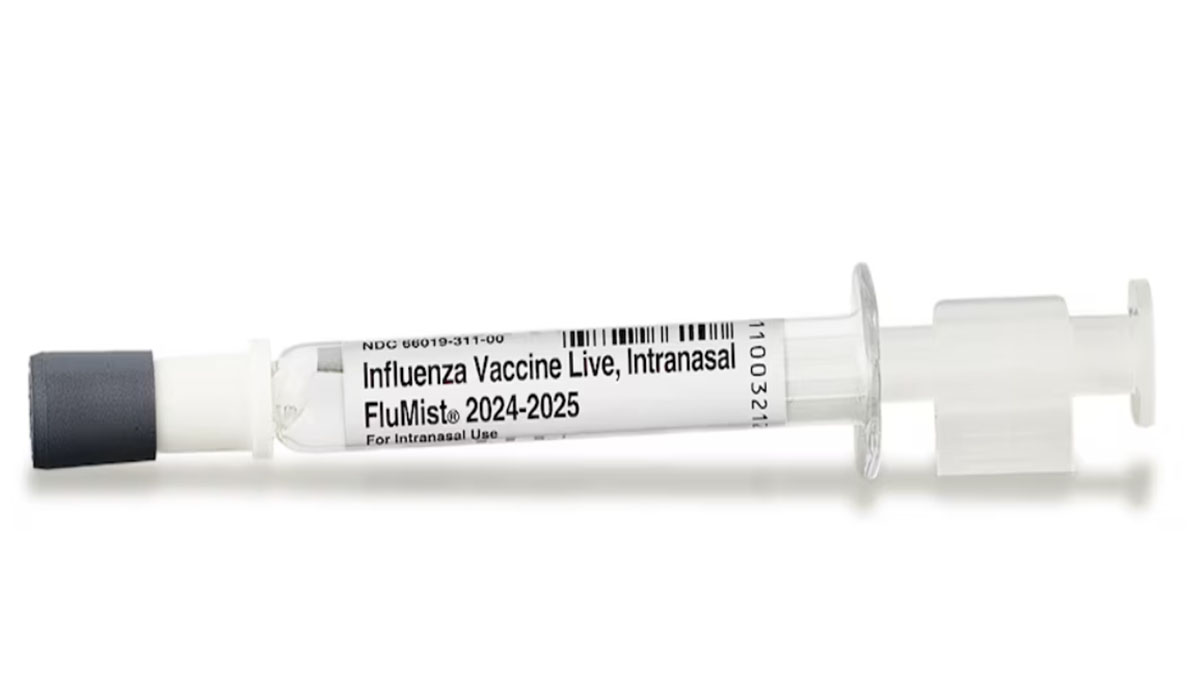
In an exciting development for public health, the Food and Drug Administration (FDA) has approved the first at-home nasal spray flu vaccine, known as FluMist. This new option aims to make flu vaccinations more accessible and convenient for families. Starting next year, consumers will be able to order FluMist online with a prescription, potentially increasing vaccination rates across the country.
What is FluMist?
FluMist is a nasal spray vaccine designed to protect against seasonal influenza. This vaccine is unique because it allows for self-administration, meaning individuals can take it at home instead of visiting a healthcare provider. Here are some key points about FluMist:
- History: Originally approved by the FDA in 2003, FluMist has been used in medical settings for several years. Its eligibility expanded in 2007 to include children as young as two.
- Administration: The vaccine is administered by spraying one shot into each nostril. This needle-free option is particularly appealing to those who fear injections.
Benefits of At-Home Vaccination
The approval of FluMist for at-home use is expected to provide several benefits:
- Convenience: Families can administer the vaccine at home, saving time and effort.
- Increased Access: This option could lead to higher vaccination rates, especially among individuals who might avoid traditional shots due to needle anxiety.
- Flexibility: Individuals can receive the vaccine at a time that suits them best, rather than being confined to a healthcare provider’s schedule.
According to Peter Marks, director of the FDA’s Center for Biologics Evaluation and Research, this approval “provides a new option for receiving a safe and effective seasonal influenza vaccine potentially with greater convenience, flexibility, and accessibility for individuals and families.”
Safety and Efficacy
While the convenience of FluMist is clear, experts have expressed some concerns:
- Storage and Administration: There are worries that inadequate storage conditions and incorrect self-administration could hinder the vaccine’s effectiveness. Scott Roberts, an infectious disease physician at Yale School of Medicine, noted, “I have anxiety that many won’t administer it properly, but at least that’s better than not getting vaccinated at all.”
- Effectiveness Comparisons: Studies have shown that FluMist and traditional flu shots have similar effectiveness. However, during the 2009 H1N1 flu pandemic, the nasal spray was found to be less effective. This led to a recommendation against its use in certain flu seasons due to low effectiveness against specific flu strains.
Who Should Avoid FluMist?
FluMist contains live attenuated viruses, which are weakened forms of the flu virus. While this makes it a safe option for many, there are groups who should avoid it:
- Individuals with Weakened Immune Systems: People whose immune systems are compromised may be at risk for adverse side effects.
- Pregnant Women: Due to potential risks, pregnant individuals are advised not to use FluMist.
- Certain Medical Conditions: Individuals with specific health conditions should consult their healthcare provider before receiving this vaccine.
Current Costs and Insurance Coverage
The out-of-pocket cost for FluMist typically ranges from $35 to $45. However, for many individuals with health insurance, the vaccine may be available at no cost. This financial aspect makes it more accessible, potentially increasing vaccination rates even further.
Conclusion: A Step Forward for Public Health
The FDA’s approval of FluMist as an at-home nasal spray flu vaccine represents a significant advancement in flu prevention. By offering a convenient, needle-free option, it is likely to encourage more people to get vaccinated against seasonal flu. While there are valid concerns about proper administration and effectiveness, the potential benefits of increased access and convenience may outweigh the risks.
As flu season approaches, families will have an important new tool to help protect themselves and their loved ones. With increased vaccination rates, we can hope for a healthier future and reduced impact from seasonal flu.
